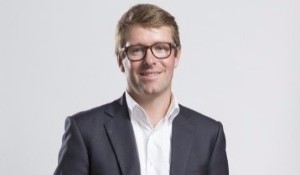

Joe Bishop, Kiwi Wealth chief customer officer, said Kiwis clearly wanted to have their funds invested responsibly but a lack of trust in their provider, and independent information, was preventing them from doing more.
"Kiwis increasingly want their personal values reflected in their investments. They want to know where every dollar is invested and that their fund manager is making sound investment decisions that match their personal values.
"The onus is on KiwiSaver providers more than ever to better meet the demands of their members. In part, that means providers should be adopting and implementing responsible investing practices across all investments, not just a few funds marketed as ‘ethical’," he said.
"Because all our funds are actively managed, we have the flexibility to change our responsible investment criteria to exclude those companies we deem ‘unethical’ and reward those who are performing well on environment, social and governance issues."
But Rupert Carylon, chief executive at new provider kōura Wealth said there were other factors to consider.
"While investors have often preferred an active approach to ESG, as they believe it is better at selecting the required investment characteristics, research from Amundi shows that a passive approach can be just as effective."
That research showed that it was possible to "significantly" improve the ESG characteristics of a passive portfolio.
"Working with an active manager means accepting that manager’s interpretation of what makes for a company with good ESG characteristics. What’s more, the investor is likely to receive only minimal insight into what factors into that interpretation. Public companies are large, complex entities with both attractive and unattractive attributes, and not all investors agree on which are which," Carlyon said.
"The combination of better data on ESG, the scalability of index-based ESG investing, and increased engagement of passive managers with the companies they hold means investors can comfortably look to passive ESG strategies to make a difference in their portfolios."
Bishop said 90% of Kiwi Wealth members said independent certification was important in their decision making.
"Trust is earned, not given, and providers can and should do more to show their members they’re not ‘green washing’. They can be more transparent on the information they’re reporting to members and open up their responsible investing practices to independent scrutiny.
"For example, any member of the Kiwi Wealth KiwiSaver Scheme can find out on our website exactly which sectors or companies are excluded and how we have exercised our shareholder voting influence to effect positive change in the companies we invest in."
"Even if there were consensus on things like nondiscriminatory hiring practices or clean supply chains, how to actually measure and prioritise these values in the stock-selection process is highly subjective. And so for investors with their own clearly articulated priorities, someone else’s idea of what makes for a "good" company can be hard to swallow.
"The combination of better data on ESG, the scalability of index-based ESG investing, and increased engagement of passive managers with the companies they hold means investors can comfortably look to passive ESG strategies to make a difference in their portfolios."
| « Generate: Advisers dealing with questions | Generate offers compensation » |
Special Offers
No comments yet
Sign In to add your comment

© Copyright 1997-2026 Tarawera Publishing Ltd. All Rights Reserved